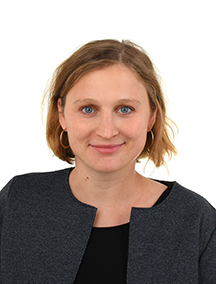
- Date: Friday, March 25, at 10am CET (9am UTC)
- Title: The plausible role of Barents and Kara sea ice loss in driving future polar vortex changes
- Speaker: Dr. Marlene Kretschmer (U. of Reading)
- The Northern Hemisphere stratospheric polar vortex (SPV) is a band of fast blowing eastward winds, forming in winter over the Arctic. The strength of the SPV affects the weather and climate in the densely populated mid-latitudes and is also linked to stratospheric ozone concentrations. Understanding potential changes in the SPV in response to global warming is therefore of huge scientific and societal interest. However, in what way the SPV will respond to global warming is not clear, with climate models disagreeing on the sign and magnitude of projected SPV strength change. Here we address the potential role of Barents and Kara (BK) sea ice loss in this. Using data from 35 different climate models, we show that the SPV weakens as long as sea ice in this region declines but that it strengthens again once all sea ice is gone. However, the time the BK Seas are ice-free differs between models which explains some of the disagreement regarding the polar vortex projections. We quantify the causal effect of BK sea ice loss on the polar vortex and find it to be plausibly very small. Yet, given the expected dramatic decrease in sea ice in the future, even a small causal effect can explain all of the projected ensemble-mean SPV weakening, approximately one-half of the ensemble spread in the middle of the 21st century, and one-third of the spread at the end of the century. Finally, we note that most models have unrealistic amounts of BK sea ice, meaning that their SPV response to ice loss is unrealistic. Bias adjusting for this effect leads to pronounced differences in SPV response of individual models at both ends of the spectrum. Overall, our results indicate the importance of exploring all plausible implications of a changing Arctic for regional climate risk assessments.
- Bio: Dr. Marlene Kretschmer is a research scientist at the University of Reading, UK. Currently she holds an individual Marie Curie fellowship to apply causal inference methods to evaluate the representation of large-scale drivers (such as the stratospheric polar vortex) of European precipitation in climate models. She is an expert in using these novel statistical methods as well as other machine learning algorithms to identify and quantify causal pathways of teleconnections from climate data.
- Link for the registration: https://univ-lille-fr.zoom.us/webinar/register/WN_5PU_GxzXTR2qPbfTcnCW6g

